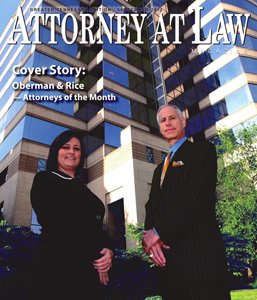Tennessee Court Procedures
Summary of the Tennessee Criminal Justice System
The following information summarizes the typical steps which occur in the Tennessee Criminal Justice System from the time the defendant is arrested through a trial in criminal court. These procedures may vary slightly from county to county and some of these steps are combined in various ways depending upon the particular jurisdiction (Tennessee county or location where your case is pending). Each step is also summarized below.
Arrest or Citation – Tennessee criminal cases typically begin with either an arrest or citation. The defendant is ordered to appear in court or at a specific location to be booked (fingerprinted, photographed, etc.) into the Tennessee criminal justice system.
Arraignment – In Tennessee, an Arraignment is also commonly referred to as an “Initial Appearance.” This procedure, which may occur before your first court or hearing date (often via video teleconferencing at the jail), is typically held before a Tennessee Judge or Magistrate. An Arraignment can also occur in Criminal Court following the return of an Indictment or Presentment. The purpose of the arraignment is to (1) set a bond/bail if permitted by Tennessee law; (2) ensure that the defendant is aware of the charges which have been brought against her; (3) advise the defendant of her right to hire a Tennessee lawyer; and (4) to schedule the next court date. At this stage in the process a formal plea of “guilty” or “not guilty” sometimes occurs. It is imperative that a defendant consults with and hires a qualified Tennessee lawyer prior to her arraignment court date.
General Sessions Court – The General Sessions Court in Tennessee has the authority (jurisdiction) to address both civil and criminal cases. In some counties, including Knox County, Tennessee, one division of the General Sessions Court is assigned to hear only DUI cases. Misdemeanor criminal cases, including driving under the influence, may be resolved in this court in one of three ways: (1) a preliminary hearing; (2) a trial without a jury; or (3) by plea agreement. Although a preliminary hearing in a felony criminal matter, such as a DUI 4th or subsequent offense, may be heard in a Tennessee General Sessions Court, this court is not authorized to conduct a trial without a jury or to accept a plea agreement, in which a defendant is submitting to a felony charge.
Grand Jury – A Grand Jury is comprised of 13 citizens (1 foreperson and 12 jurors) who take an oath of secrecy. One purpose of the Grand Jury is to determine if probable cause exists for a criminal charge. In reaching this determination, the Grand Jury often meets with the prosecution’s witnesses, but only in rare circumstances with the defendant or the defendant’s lawyer. The Grand Jury is “grand” because it is comprised of more members that the trial (petit) jury, which has only 12 members.
Indictment or Presentment – the formal charge against a defendant, which may be in the form of an Indictment or Presentment, and is signed by the Grand Jury. This formal charge must state each element of the crime.
Criminal Court – the highest trial court in Tennessee. Once a case reaches the Criminal Court level, a defendant is afforded more rights than at the earlier stages of the case (which are discussed in more detail below). For instance, in Criminal Court, a defendant has the right to a trial where the State or prosecution is required to prove guilt beyond a reasonable doubt. A defendant is further entitled to a jury of 12 people from the community to determine if the prosecution has proven its case. If a person is convicted following a trial in a Tennessee Criminal Court, he or she then has the right to appeal the conviction, the sentence, or both. At this stage, a defendant retains the right to be appointed a lawyer to represent him if he cannot afford to pay a lawyer for the appeal.
Your Rights in any Tennessee Criminal Case
Whether a person is charged in Knox County, Tennessee or any other location in the state, each person (defendant) has certain rights. Although afforded certain additional rights at the Criminal Court level, as discussed above, each Tennessee criminal defendant, at every stage of his case, has the right to:
- A lawyer. The court must appoint a Tennessee attorney if the court determines that the defendant cannot afford to hire a lawyer;
- A preliminary hearing in most cases. This allows a Tennessee judge to determine the issue of probable cause;
- Have the case considered by a Grand Jury;
- A jury trial;
- Remain silent;
- Be presumed not guilty and to have the State prove your guilt at each stage;
- Plead not guilty and to persist in that plea;
- Confront each and every witness against you in court, meaning your lawyer has the right to cross-examine witnesses who give testimony against you; and
- Subpoena witnesses to come to court and testify on your behalf.






















